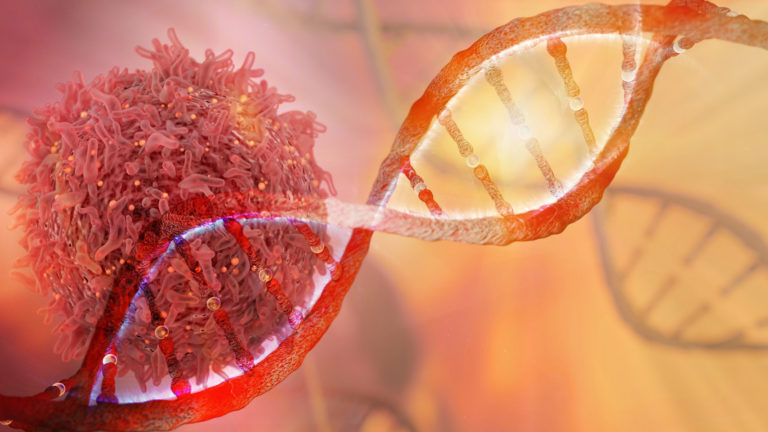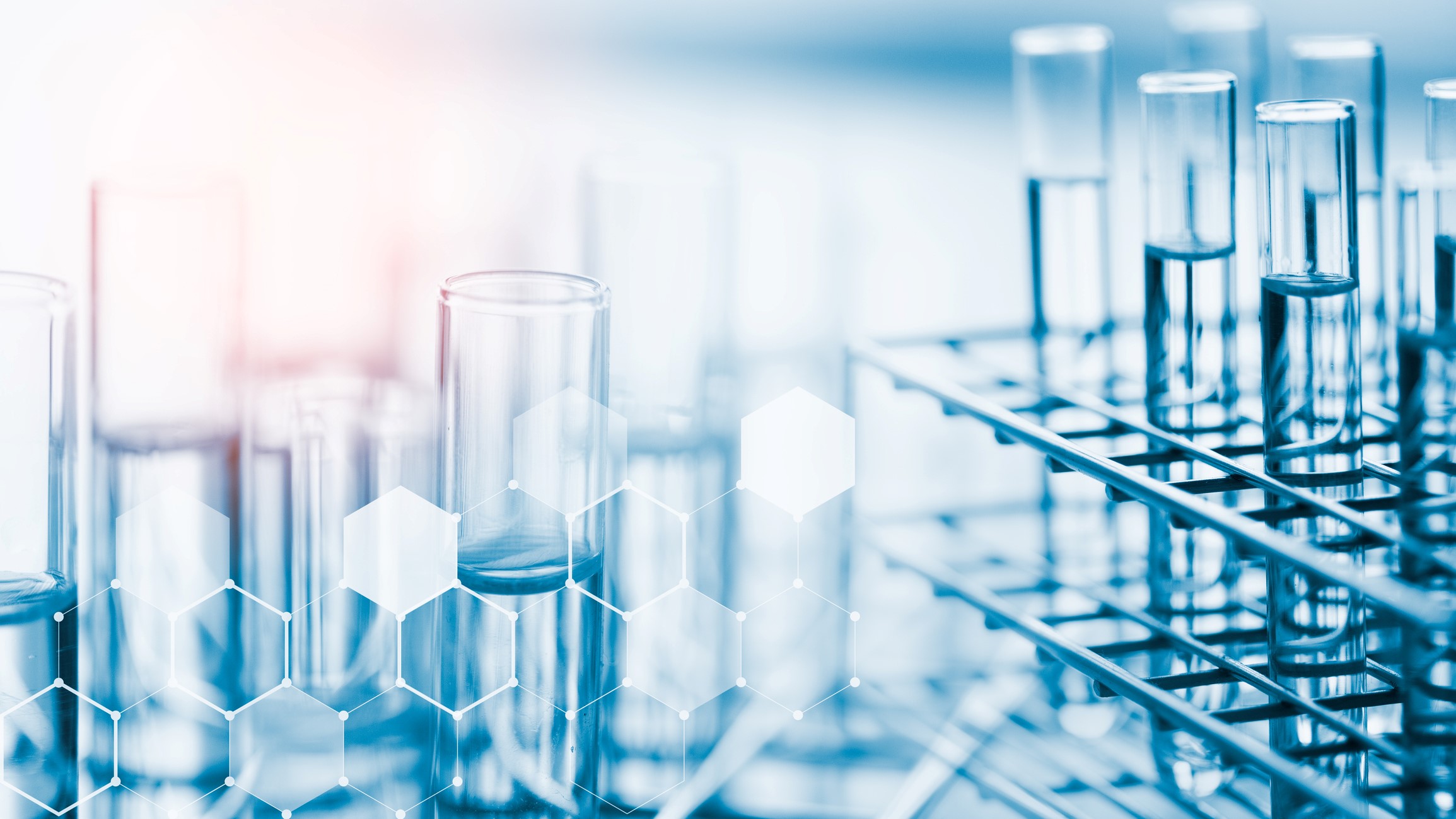Fighting cancer with precision: The story of NEOGAP

Associate Professor Hans Grönlund specialises in translational immunology for the development of new curative treatments of immune-related diseases. He has successfully applied this expertise in his research on various conditions, including allergies, multiple sclerosis (MS), Type 1 diabetes, and cardiovascular disease, for over 20 years.
In 2014, his path crossed with Samuel Svensson, a professor of pharmacology at Linköping University with extensive experience in pharmaceutical development. Samuel led the non-profit organisation CBD Solutions, which supported research in neurodegenerative diseases. CBD Solutions was the sponsor of Hans’ biomarker project, which focused on a common neurological disease, multiple sclerosis (MS). MS is caused by a patient’s immune system mistakenly attacking certain proteins in the central nervous system. The key players in this attack are T cells, and Hans’ biomarker project aimed to identify auto-reactive T-cells and their targets in MS.
Hans approached Samuel Svensson and asked, “I have an idea which I believe can be used to cure cancer with minimal side effects. Can you support the idea?” The proposal was accepted, and Sten Mörtstedt’s charity company Victoria Bioventures and Hans Grönlund founded a company. Samuel Svensson was appointed CEO. Thus, the development of the innovative EpiTCer beads could kick-start, building upon earlier pioneering research in allergy vaccination conducted a decade earlier, as well as more recent advancements in multiple sclerosis.
Mutations in the genetic code randomly occur when cells divide. When a mutation causes an amino acid change, a neoantigen is formed, and the resulting protein’s function may be altered. In the typical case, these neoantigens are removed by a healthy immune system. If they are not recognised and accumulate, cancer can occur. “The focus of NEOGAP is to restore, instruct and activate the patient’s own T cells that specifically recognise these neoantigen but not healthy tissue,” says Samuel Svensson.”
Located at Karolinska Institutet, NEOGAP has selected an outstanding and professional dream team dedicated to the cause of curing cancer.
Proprietary software draws the map
One of the complex challenges when treating cancer is that each tumour has several different mutations and, thus, neoantigens. The most relevant mutations must be targeted to create an effective therapy. To select tumour-specific mutations giving rise to neoantigens, DNA from the tumour must be compared with normal DNA from the patient. But since every individual has 22,000 genes in their DNA, the process is challenging.
NEOGAP’s solution is their proprietary software PIOR®, using algorithms and machine learning to perform a comprehensive analysis of the mutations. It selects up to 36 neoantigens for each patient.
“PIOR® creates a map of how the tumour is structured, giving us the recipe to create highly effective treatments that bypass the tumour’s defence mechanisms. There is nothing comparable on the market today, which means PIOR® is of significant interest to many other research and pharmaceutical companies,” says Samuel Svensson.

Creating the cancer weapon
After PIOR® has identified and selected the best antigens, the next step in NEOGAP’s immunotherapy is to generate effective target-seeking T cells. The first step is to harvest T cells from the patient’s lymph nodes closest to the ‘war zone’–the tumour–which have already received basic natural training in fighting cancer.
The EpiTCer® technology is then applied to multiply and instruct the patient’s T cells to target the identified neoantigens. With EpiTCer®, the neoantigens are linked to magnetic microparticles designed to be easily processed by antigen-presenting cells, i.e. cells of the immune system that are specialised in presenting antigens to the T cells, which in turn train T cells to recognise and target those neoantigens. Normal cell division then takes place, and when enough T cells have been formed, they are returned to the patient to seek out and attack the tumour.
“As with the PIOR® technology, the EpiTCer® technology has far greater applications than only immunotherapy for cancer. It can be used for presenting antigens in several disease areas. In fact, it has already helped MS researchers find new targets,” says Hans Grönlund.
The great advantage of NEOGAP’s immunotherapy is that it is completely personalised. It is based on endogenous T cells and targets tumour-specific mutations. The T cells are not manipulated to become more aggressive, only more targeted.
“The fact that we use the patient’s own cells significantly reduces the risk of severe side effects that other immunotherapies sometimes cause by triggering the immune system too much,” says Hans Grönlund.
Large unmet market need
Fast-forward to 2023, after intense research and successful preclinical studies. NEOGAP has initiated a phase I/IIa clinical trial on its cell therapy product called pTTL, personalised Tumour Trained Lymphocytes.
“Initiating clinical studies marks a critical step forward in NEOGAP’s development, and an exciting new era has begun after six years of hard work. We have passed an important milestone in our mission to develop immunotherapy that can cure patients with minimal side effects,” says Samuel Svensson.
The therapy can potentially treat many types of cancer, but NEOGAP initially focuses on advanced colorectal cancer. Colorectal cancer accounts for approximately 10% of all cancer cases and is the second leading cause of cancer-related deaths. For colorectal cancer patients with stage IV metastasised disease, the five-year survival is only 13%.
Apart from the obvious medical need, there is a large unmet market need. In 2021, the global colorectal cancer therapeutics market was valued at USD 10 billion, and it is expected to continue growing due to increased incidence and improved diagnostic methods.
“We have noticed a significant patient interest in our study, which demonstrates the unmet medical need and demand for new drugs in this patient group,” says Samuel Svensson.
Pushing the boundaries of science
In the coming years, Samuel Svensson envisions NEOGAP running further clinical studies before out-licensing its first product to a large pharmaceutical company with the capacity to take the project beyond market access. He also expects more cell therapies and out-licensed products to follow. Additionally, the company plans to establish strategic partnerships to pave the way for the next steps.
“In the next ten years, we foresee NEOGAP growing into a larger company that delivers new and innovative treatments. Our vision is to make effective, curative personalised immunotherapy a reality. We are committed to pushing the boundaries of science to achieve this goal and to win the war against cancer,” says Samuel Svensson.

